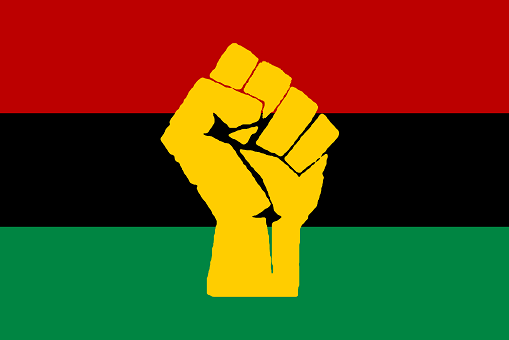History matters. Historical events can sometimes have consequences that last long after the events have finished. An important part of Africa’s past is its history of slave exporting. Although Africa is not unique to the trading of slaves, the magnitude of slave exporting rose to levels not previously experienced anywhere else in the world. Between
History matters. Historical events can sometimes have consequences that last long after the events have finished. An important part of Africa’s past is its history of slave exporting. Although Africa is not unique to the trading of slaves, the magnitude of slave exporting rose to levels not previously experienced anywhere else in the world. Between 1500 and 1900, an estimated 10 million slaves were exported from West and Central Africa.
The effects of slave exporting in West Africa.
To put this in perspective, the estimated population in these regions in 1700 was about 28 million people. The exports also do not include people who died either during capture, the long trek to the coast, or the journey across the Atlantic. In short, it was a significant event in Africa’s history lasting over 400 years. A significant event of this magnitude is bound to have long lasting effects.
Many researchers have tried to uncover some of these effects with some degree of success. Some find that relatively higher slave exports is inversely correlated to relatively lower GDP in more recent times. Higher slave exporting societies have also been linked to lower levels of trust, higher levels of fractionalization, and many other effects.
However, there are often challenges to uncovering the long term effects of historical events. The first, in terms of Africa, is that most of the countries for which we currently have data, were non-existent at the time. There was no such place as Nigeria in 1790.
There was no such place as Zambia in 1920. Of course this is not because there were no people inhabiting those areas, but because the mode of political organization was very different. A second challenge in uncovering long-lasting effects of historical events is that history never really stops. In Africa, the slave trade era was swiftly followed by the colonial era, which of course had its own long term consequences as well.
Two things can help get around these two problems. First, we can examine how things changed in the period directly after the slave trades era, and to look at places that had very similar colonial experiences.
If we examine these places, then anything we uncover cannot be directly as a result of colonial experience. And if we examine changes during the colonial era, then the effects of slave trading are likely to still be prevalent.
For example, we could look at the changes that took place within Nigeria and Ghana during the colonial era, specifically with regards to educational attainment. Nigeria and Ghana are both similar countries with respect to their historical experience.
They are both relatively big countries with many different ethnic groups within their boundaries. They were both heavily involved in events during the slave trade era. Finally, they both got colonized by the British and were run in a similar manner.
Literacy is a useful metric for a variety of reasons. From a technical economist’s perspective, human capital is an input in the production function. Higher levels of human capital should result in higher levels of productivity and GDP. From a historical perspective, we know that the British colonial administration did not really have any education policy in the West Africa colonies. What this means is that any improvements we find can be attributed to local level activities and not top down education policy.
Literacy numbers for administrative districts in Nigeria and Ghana in the 1950s suggest that areas with a relatively high slave exporting history tended to have lower levels of literacy compared to other areas. This is after controlling for geographical, missionary, and religious influence, and other factors.
Interestingly, the effects don’t just end during the colonial era. The relationship continues to persist up to contemporary times. Local administrative level literacy rates point towards historically high slave exporting areas in Nigeria and Ghana still exhibiting relatively lower literacy rates.
This confirms, as studies have highlighted, that Africa’s history of slave exporting did have long term consequences particularly on literacy.
However, these effects do not necessarily occur at the nation-state level. After all, there was no Nigeria during the slave trades. These effects seem to influence things at the local administrative and community level. The implication, unsurprisingly, is that the inner workings of communities in countries matters for how events shape outcomes.
As with everything historical, the findings do not imply the outcomes will always be the same, or that the destinies of these communities is permanently cast forever. However, it should motivate researchers to dig a bit deeper into communities to better understand how some of the effects play out, and how future outcomes can be influenced.
1 comment


















1 Comment
Temp mail
Wednesday, July 24th, 2024, 9:20 amI appreciate the effort that goes into creating high-quality content, and this post was no exception. The insights and information were top-notch and made for a really engaging read. Keep up the great work!
REPLY